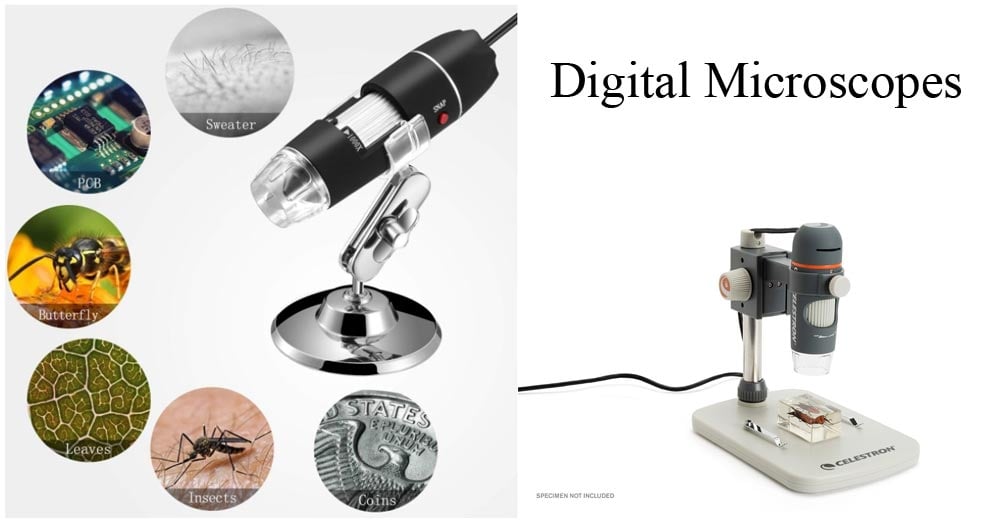In recent years, digital microscopy has transformed the way we explore the microscopic world. Whether in classrooms, online courses, hobby labs, or professional research, digital microscopes have become essential tools for modern observation. Their ability to capture, display, and share high-resolution images makes them not only practical but also incredibly engaging.
Why Digital Microscopy Is Booming
The rise of digital microscopes is driven by three main factors:
1. Remote Learning and Online Education
With the growth of virtual classes, remote science labs, and digital classrooms, students and teachers rely on tools that make observation easier and more interactive.
Digital microscopes allow users to view samples directly on a computer monitor, tablet, or projector, making demonstrations accessible to entire classrooms both in person and online.
2. High-Resolution Imaging
Modern digital microscopes come equipped with HD or 4K cameras that capture clear and detailed images.
This opens new possibilities for:
Capturing microstructures
Recording videos of dynamic samples
Comparing images side-by-side
Documenting research results
The clarity provided by digital sensors reveals details that traditional eyepieces may not show.
3. Sharing Images Has Never Been Easier
One of the greatest advantages of digital microscopes is how easily images can be shared.
Students, hobbyists, and researchers enjoy posting:
Microscopic images of crystals, insects, and plants
Time-lapse videos of moving microorganisms
Zoomed-in textures from everyday objects
This makes digital microscopy extremely engaging on social media platforms like Instagram, TikTok, Pinterest, and science blogs.
The ability to save and upload images immediately is one of the reasons digital microscopy is considered the “microscope of the digital generation.
How Digital Microscopes Work
Digital microscopes use a built-in camera instead of traditional eyepieces.
Users observe the sample on a screen, allowing for:
Less eye strain
Larger, clearer images
Easy collaboration
Real-time adjustments
Trinocular models also allow you to attach a USB camera to transform a regular microscope into a digital one.
Advantages of Digital Microscopes
Digital microscopes offer numerous benefits:
Easy to Use
No need to adjust multiple eyepieces just focus and observe on a screen.
Ideal for Learning
Perfect for beginners who struggle with traditional focusing.
Perfect for Documentation
Great for research, quality control, education, and lab reports.
Enhanced Collaboration
Groups can view the same sample at once excellent for teaching or teamwork.
Compatible With Software
Many models include software for:
Measuring structures
Annotating images
Saving projects
Creating videos
Popular Uses of Digital Microscopy
Digital microscopes are used in many fields, including:
Biology experiments
Material science
Electronics inspection (chips, circuits, soldering)
Quality control
Education and demonstrations
Hobby microscopy
They also help users document their findings with precision.
Why Digital Microscopes Are the Future
As technology continues to evolve, digital microscopes will become even more advanced. With improved camera sensors, AI-assisted image analysis, and online connectivity, the future of microscopy will be more accessible and more visual than ever.
Digital microscopes make science easy to share, exciting to explore, and accessible to everyone—from the youngest student to the most advanced researcher.
Conclusion
Digital microscopy isn’t just a trend it’s a true transformation in how we observe the world around us. With powerful imaging, easy sharing, and modern connectivity, digital microscopes are reshaping education and research.
In a world where visuals matter, digital microscopes are undeniably the future of observation.
Crafting Beautiful Spaces
Designing elegant, inviting environments that inspire and delight.
